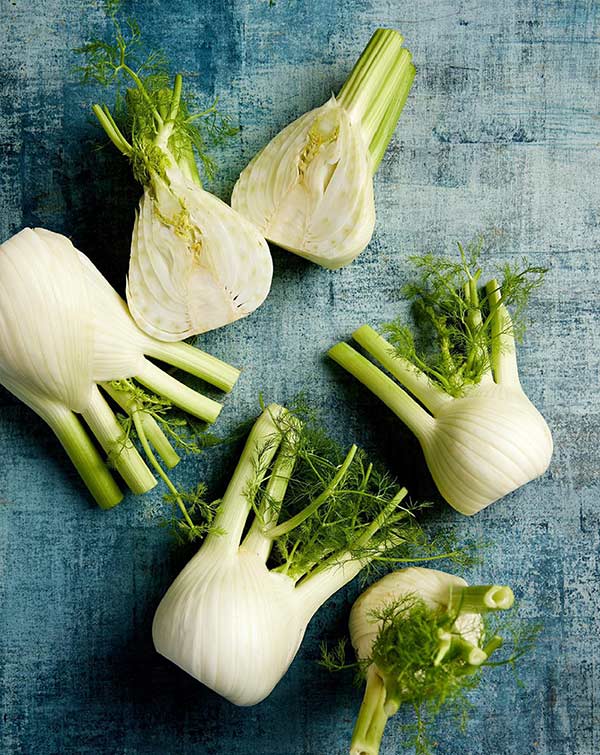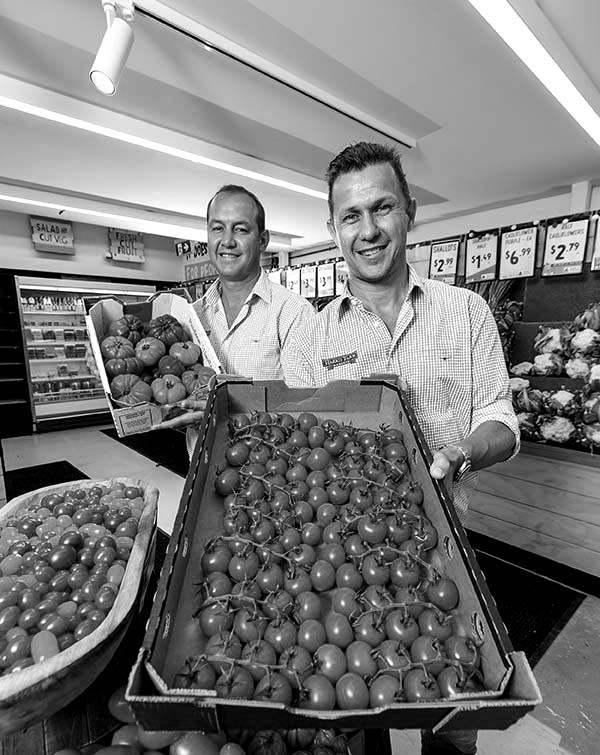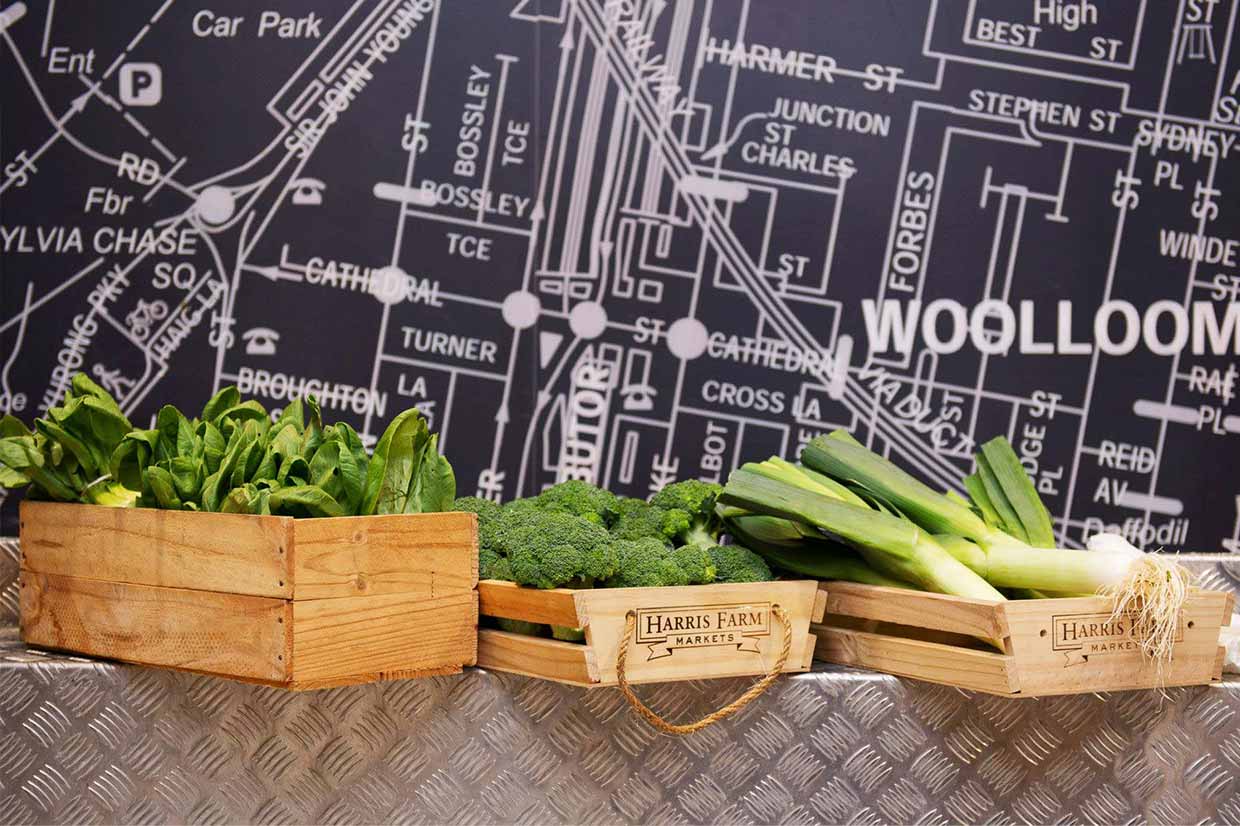
THREE COMPETITIVE BROTHERS – A RACE TO RUN HARRIS FARM
Harris Farm is a household name in New South Wales, Australia. Family-owned. Farm to table. Honest. Connected to nature. These are the words that come to mind when we think of these specialty goods, fruit and veg grocery stores. Harris Farm is personal. Harris Farm is care. Quite a departure from the goliaths that monopolise the supermarket space and seem to put profit before everything else. Fitting that the founder of Harris Farm is David… David Harris.
WHERE IT ALL BEGAN
In 1971, David and Cathy Harris founded Harris Farm, a humble fruit and veg store in Villawood, NSW. David had been studying two degrees at two different universities. He was full of all sorts of energy, ready to take over the world… well his parents’ chicken processing business actually. However, things took a detour when David’s father sold the chicken business just before he graduated.
“Son, there was too much vertical integration. That business wasn’t the right business to be in. You should go out and find your own thing. I’ll give you three rules to narrow down what you are going to do. Make sure it is capital light to buy, in whatever industry you choose make sure the big boys don’t do it very well, and thirdly make sure it pays cash,” advised David’s father.
So David went out looking for the industry that he was going to make his future. He came home one day and said to his parents… “I’ve narrowed it down to two options, undertaking or fruit shops.” His Mum responded with ‘Son, that’s not two options!”
And so fruit shops it was.
David bought an existing fruit shop in Villawood and quickly built a strong business offering high quality fruit and veg. Villawood had a strong European migrant population and the locals embraced David and his little store. David built the shop up, then sold it and bought a new fruit and veg store in Pennant Hills. This was to be his model. Buy on sale, build the store up and then sell.
That is, until he bought another store at St Ives and had two on his hands. The rule of thumb at the time was that you couldn’t run two stores at once. But David felt he could manage it. By 1980 he had grown his not-so humble fledgling empire to four or five locations.
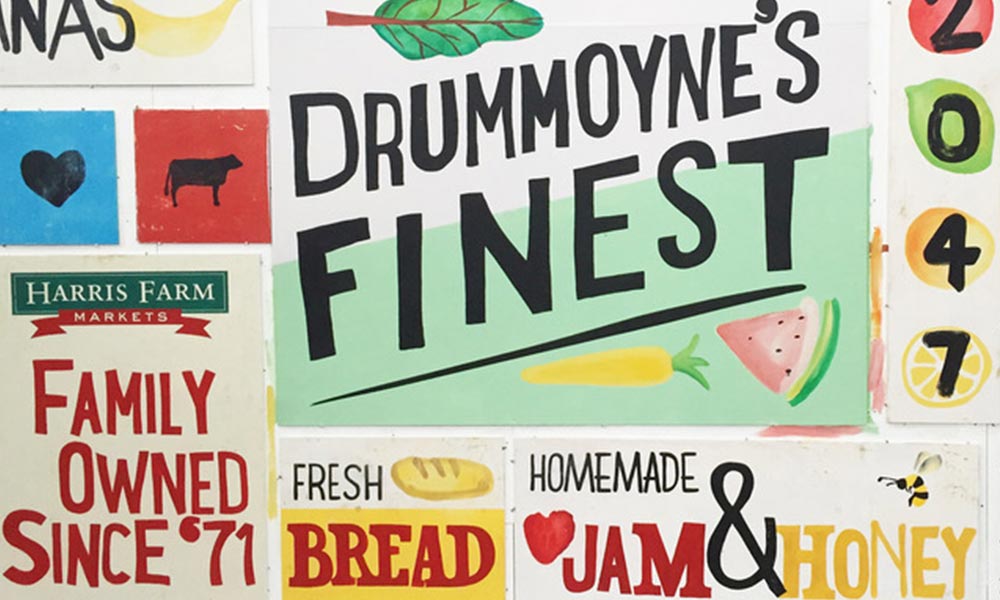
MASSIVE EXPANSION
David’s biggest pain point was figuring out what to buy for each store on any given day. David had Toledo scales and NCR cash registers. At the time, nobody was able to make a weighted item talk to a cash register and then communicate to a central computer so you could see what was selling and what needed to be ordered. David worked with IBM and a developer to build a huge computer program that solved this ordering communication issue, a program that Harris Farm still has running in the business today. It was a world first at the time, pre-internet. It was the source of truth.
David would get up every morning, sit at home and tap through the computer system to do his buying. And in fact, despite Harris Farm now having more sophisticated technology, David still uses this program that he had built in 1980.
This technology allowed David to scale. He felt he was in a great position. When you buy a store, you get the stock and you can start selling with a couple of weeks of leeway to pay for it. This was bankrolling the cash flow. But by the mid 80s business was hard and David had to sell half to venture capitalists.
Things grew very quickly from there. They did what venture capitalists did – they borrowed a lot of money and expanded at an alarming rate. By the late 80s they had up to 37 stores in three states – ACT, NSW and QLD.
By the 90s things started to unravel. The venture capitalist firm went bankrupt, banks were calling on the debt and David tried to trade out of it. Interest rates were 18%. Harris Farm went into default. Effectively David was broke.
This was a tough time for the whole family. David and Cathy had five sons. Tristan Harris (son number two), recalls being 15 at the time. The bank was selling their home.
THE MAFIA IN THE MARKETS
Sydney Markets were run by crime figures back in the 90s, and on top of the financial woes of the Harris family, some guy took a contract out on David for not paying for the fruit that he bought.
“I remember Dad receiving death threats and the mafia coming after him,” recalls Tristan. “Dad felt like he was being knocked from pillar to post.”
David had many colourful characters for and against him. At one stage, Lenny Mcpherson, a notorious crime boss, rang him and said ‘ Don’t worry mate, I’ll look after you.”
It took a good 10 years to untangle the mess, but eventually it did untangle. And Harris Markets survived.
THREE HARRIS BROTHERS RUN THE BUSINESS
Luke Harris was the first to join the business. After school he wasn’t enjoying university so he spent a year pearl diving in the Northern Territory. David called Luke and suggested that if he wasn’t enjoying university why didn’t he come and work with him. So from a very young age Luke worked his way up through Harris Farm.
Ten years later, brother number four Angus also joined. He had been in banking, finance and IT.
Tristan had left school just after the family had gone broke, so he thought to himself there was no way he was going to do that for a living. He went and studied engineering and then embarked on a diverse career for about 10 years after leaving university. Tristan was the last brother to join the business.
“I had made the longest string of very bad career calls. I was working in mining-engineering in 98 and I left because there was no money in it – just before the biggest mining boom of the century. I then went and joined a telco equipment provider, six months before the internet crash. Next I started a mildly successful business, but sold out to get into something with more cash flow. I then launched a retail business, a salad bar; that didn’t perform at all. I did that for four years and it was really hard work. 100 hours a week absolutely grinding. I sold it at a loss. In 2006, I looked around and thought ‘what am I going to do?’ I noticed that all these blokes in banking were making a lot of money,” recalls Tristan, deciding to start his MBA.
As he began to look around for jobs, he had a realisation. He had gained good retail experience. He was crazy to start over in a completely new industry. Harris Farm was back on its feet, so he called his mum and dad and suggested he join the family business.
Cathy Harris said to her son, ‘Unfortunately we don’t have a job for you.”
Ouch, that hurt.
A couple of months later, Cathy called her son and said “now we do have a job. But you can’t expect to waltz in and it is all going to be easy. The salary that we are going to offer you is half of what you were on before you started your salad bar.”
The real kicker for Tristan was that he had to report to his two younger brothers – Luke and Angus.
This was David and Cathy’s way of saying “yes you can join the business but you are going to have to work hard to get there and you are going to have to really want it.”
Tristan set out to prove to his family that he was absolutely worthy of sitting at the same table as his brothers.
Angus had a similar story when entering the business. He had been working at JP Morgan and when he left his role to work at Harris Farm, JP Morgan sent him a letter offering to double his salary. Angus requested to see his Dad and showed him the letter. His Dad read the letter, screwed it up, threw it in the bin and said “well that’s going to be a hard decision for you, son.”
David and Cathy were very good at making sure their sons wanted to be in the business for the right reasons.
The three boys found their groove together. Tristan looked after the non-fruit and veg side of the business – all the specialty grocery items, the products you can’t find anywhere else. He built that range and put some systems and processes in place. Eventually, Tristan moved up and started doing all of the buying across the business. He grew into marketing and logistics. Luke was running the stores and looking after people and culture. Angus was heading up finance and IT and then approached his brothers about getting into online shopping. Tristan and Luke were against this idea. They didn’t believe they had the time or resources to make it happen. Angus insisted that they didn’t need money or resources.
“I said to Angus ‘if you don’t need money or resources then go ahead and do it.’ The little smart ass came back a few weeks later to say ‘hey we are online,” laughs Tristan. His wife was a graphic designer and so she designed a website and they bought an off-the-shelf CMS. And away they went. The first place they delivered to as a pilot was Mudgee, NSW.
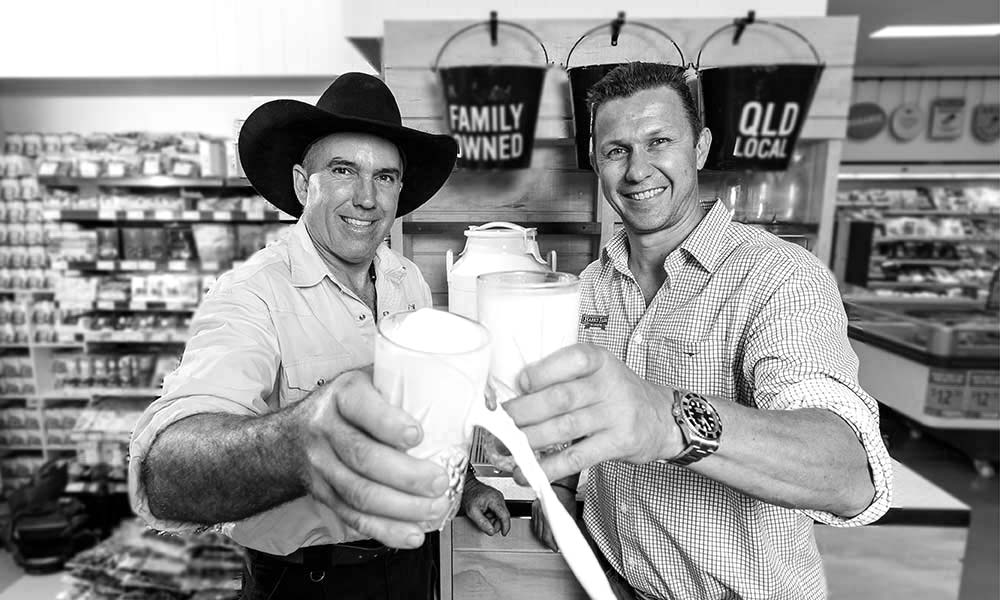
THE RACE TO RUN THE BUSINESS
Looking back, the boys referred to themselves as underdeveloped managers. They ran their divisions completely siloed from one another – very competitively and completely protective of their own division.
“Don’t touch that, that’s mine. Consciously working incredibly hard,” remembers Tristan. “We could feel a race going on for who was going to eventually be the one to run the business.”
In 2013 David had a meeting with his sons and expressed his intention to hand over the running of the business. He felt that he had had the opportunity to run his own business from an early age and wanted this same experience for his boys. But who was going to take the reins? The solution – all three would be joint CEOs.
The boys were all still of the mindset that each of them deserved to be the one to run the business. They had never considered a situation where it would be a shared responsibility. Tristan recalls wanting to quit. Everyone was shell shocked.
“The relationship between the three of us brothers had always been so competitive, it was difficult to imagine how we were going to come together to run Harris Farm as a united front,” shares Tristan.
In the end it took a lot of work with some great help, a brilliant coach and an independent board, to become a partnership.
“I appreciate the feels you guys have about this, but at the end of the day it is what it is and you have to make this business succeed,” was the best advice the boys ever received from their coach.
What was the thing that was going to make it succeed? Definitely not the three Harris boys fighting amongst each other.
Over time they became better and better at working together, and the pinnacle was when they restructured to ensure the senior management team reported to the three Harris boys collectively.
The three become one united voice.
All three had the right to make decisions in all areas of the business, respectfully.
Tristan appreciates it is a really unusual structure. It can still be very challenging for them and for their team, but the results do speak for themselves. As much as the boys might not like to admit it, they are better together. In the eight years they have been running the business, the bottom line has gone up over eight times.
SUSTAINABILITY AND FLEXIBILITY AS A WAY OF BUSINESS
As a family business your name is above the door. You have family values that are almost automatically built in to become the business values.
The Harris boys had shifted the business to focus on a customer that wasn’t so price sensitive, and that cared about more than the fruit and veg. A sustainability focus was a natural fit for their clientele and was something that the Harris family deeply cared about. It meant that they could make some decisions that might not mean profitability in the short term but would hopefully be hugely beneficial for the long term.
Harris Farm was the first to make a stand against plastic bags. They collaborated with Clean Up Australia and gave 5c for every non-plastic bag used, towards the initiative. It was extremely successful and reduced the plastic bag use in store by 40%. They then made the bold move to stop using them at all. Customers loved it.
Another initiative that has been highly successful is the ‘Imperfect Picks’. Fruit and veg that tastes beautiful but might not look as pretty, being sold for a discounted cost to customers. This was a win-win for growers and customers. Customers saved a penny and growers could sell their produce that would previously have been discarded.
“When you talk to farmers and growers and see how hard they work, and then 90% of the time what goes wrong is the weather, something completely out of their control, it is heartbreaking,” shared Tristan. If you think about the carbon impact of growing food, then 20% of food has to be discarded, it didn’t make sense and Harris Farm knew they could do something to change this current farming reality. Harris Farm went to market with the Imperfect Picks campaign within 3-4 weeks of its inception.
Again customers loved it. It became a calling card for what Harris Farm does.
Harris Farm can make decisions intuitively based on what they think is right for their customers. They have absolute autonomy to go ahead and make these decisions and if it costs them money, it doesn’t matter. They are not beholden to shareholders.
They started as a fruit shop and to this day run to the same mentality and values – making decisions quickly. “In fruit if you don’t make decisions quickly you can fail. If you put up ten kilos of snow peas, and you only sell two kilos, the basic maths says that the rest of those are going to be on the stack for five days. But by day three they are looking poor, so half need to be discarded. You get this long wind down. You need to make decisions really quickly. You need to be able to say ‘I need to halve these in price and put them in another store and get rid of the whole lot today.’ Otherwise I will be in trouble. Moving very quickly with great flexibility is built into the mindset of our business,” explains Tristan.
As mentioned right at the beginning of this article…Harris Farm is personal. Harris Farm is care.
As Harris Farm continues to grow with great speed – we watch as the family love spreads across Australia.
Learn more about Harris Farm.
OTHER STORIES
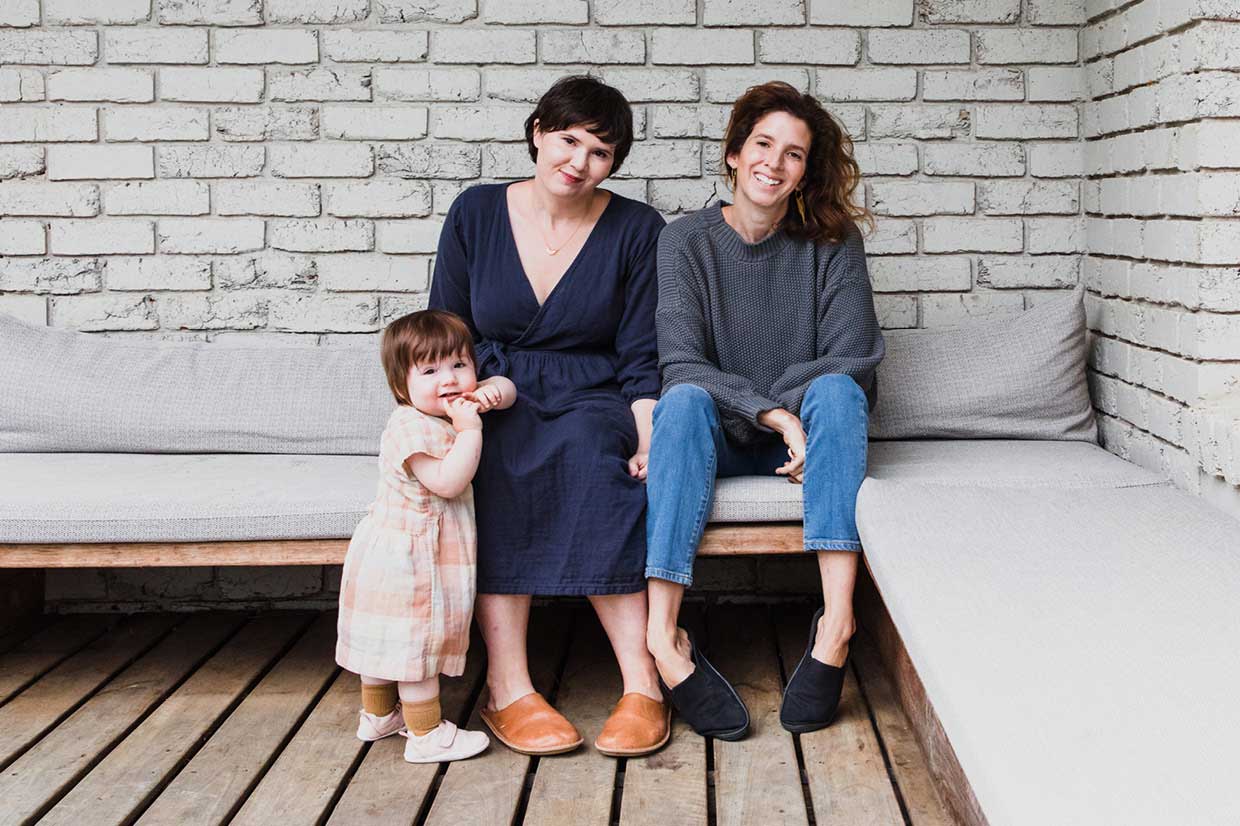
OLLI ELLA – TWO SISTERS WHO NEVER QUITE GREW OUT OF BEING KIDS
Spend time with Chloe and Olivia Brookman – the two founders of Olli Ella. These sisters combine their nomadic lifestyle, playful, carefree aesthetic and quest for functionality in their sustainably made homewares, apparel, children’s products and toy collection.
read more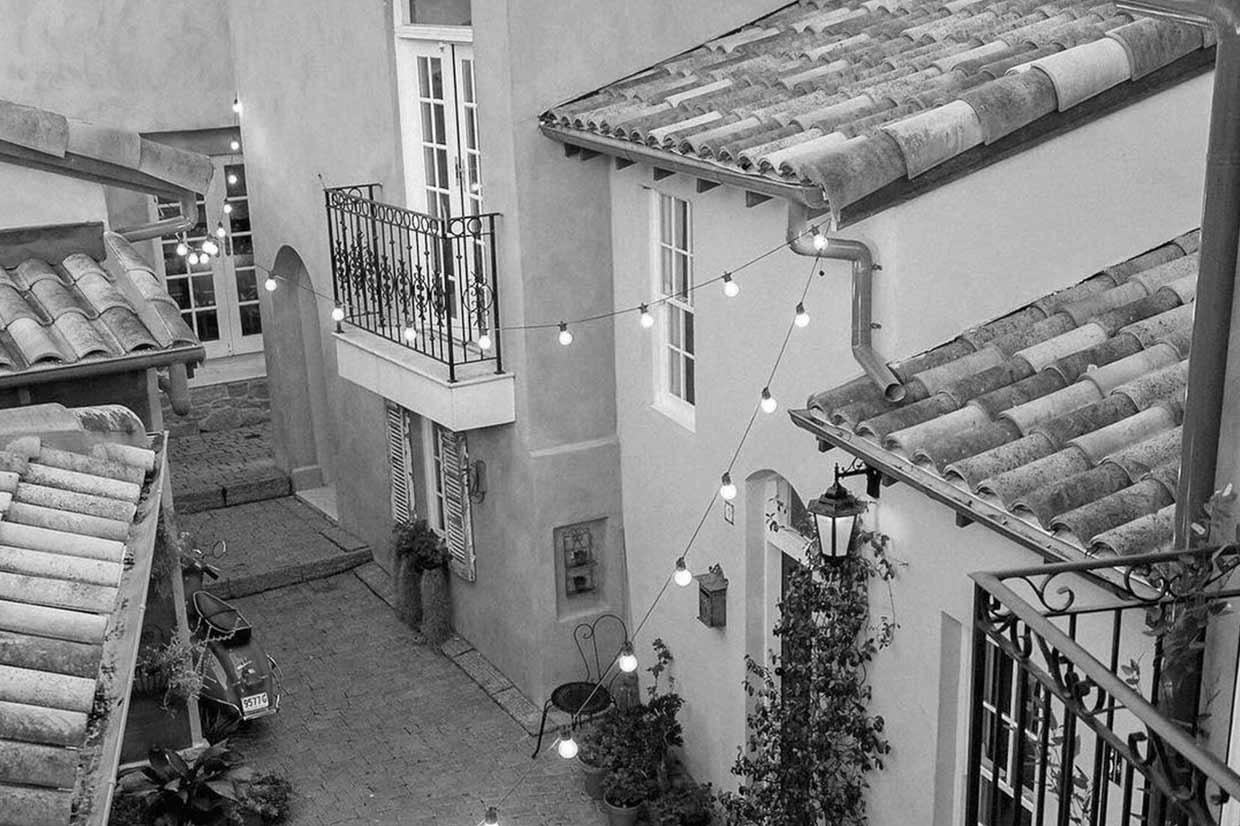
THINGS WE LOVE: GUESTLANDS
New South Wales is free! Which means it’s time to explore our region. We’ve found a Tuscan-inspired getaway just 40 minutes from Sydney CBD that’s sure to have you thinking you’ve hopped a flight in Europe.
read more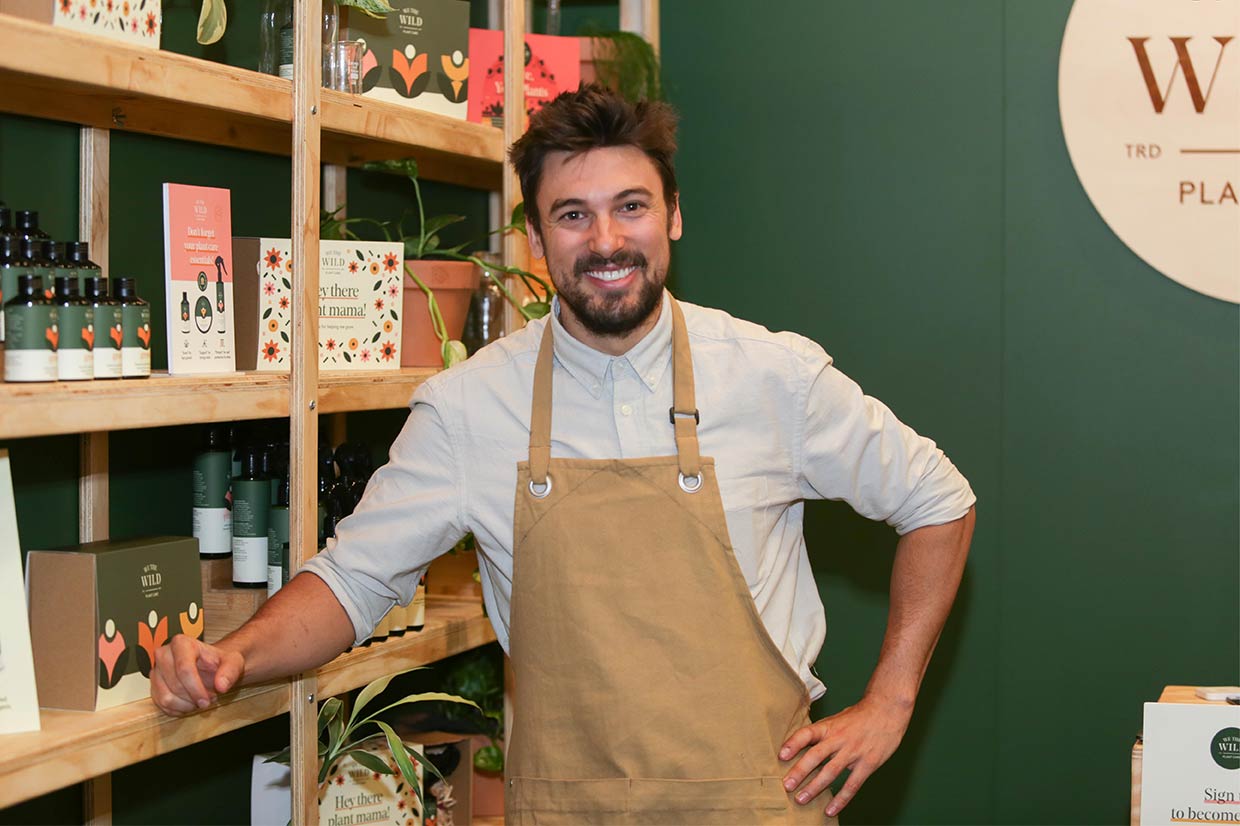
WE THE WILD, BRINGING BIODIVERSITY TO THE HOME
Plants aren’t meant to grow in pots, so they need a little extra help. We The Wild are bringing biodiversity into your home, organically…
read more
